Startup Secrets: Offering A $500 Product For Free
Rocket Academy CEO Neo Kai Yuan shares how offering a $500 product for free helped to grow revenue, and other lessons in fundraising and dealing with layoffs.
Confessions of a CEO: Neo Kai Yuan
- 1. What was it like to launch Rocket Academy?
- 2. How did you grow your customer base from three students to your first 100?
- 3. How did you find investors when you first started the company?
- 4. What strategies were most successful in convincing investors to get onboard?
- 5. What is the business failure that you learned from the most?
- 6. What is one belief you hold that other business leaders might disagree with you on?
- 7. How do you keep Rocket Academy ahead of the competition?
- 8. What is your number one secret to success in driving sales?
Neo Kai Yuan is not your typical entrepreneur or software engineer.
In fact, nothing about his story is typical. At 15, he scored a record deal with Sony Music Japan and produced two albums with his band, Amplified. At 17, he left the music industry to focus on academics.
At 20, he got into Stanford University and studied computer science. Two years later, he was interning at major companies like Alibaba and Facebook, eventually working in Silicon Valley as a software engineer.
By the age of 27, he started pivoting into business. But while most engineers-turned-entrepreneurs use their expertise to launch new tech solutions, Kai Yuan ventured into tech education. It’s not the career trajectory one would expect.
In fact, nothing about his story is typical. At 15, he scored a record deal with Sony Music Japan and produced two albums with his band, Amplified. At 17, he left the music industry to focus on academics.
At 20, he got into Stanford University and studied computer science. Two years later, he was interning at major companies like Alibaba and Facebook, eventually working in Silicon Valley as a software engineer.
By the age of 27, he started pivoting into business. But while most engineers-turned-entrepreneurs use their expertise to launch new tech solutions, Kai Yuan ventured into tech education. It’s not the career trajectory one would expect.
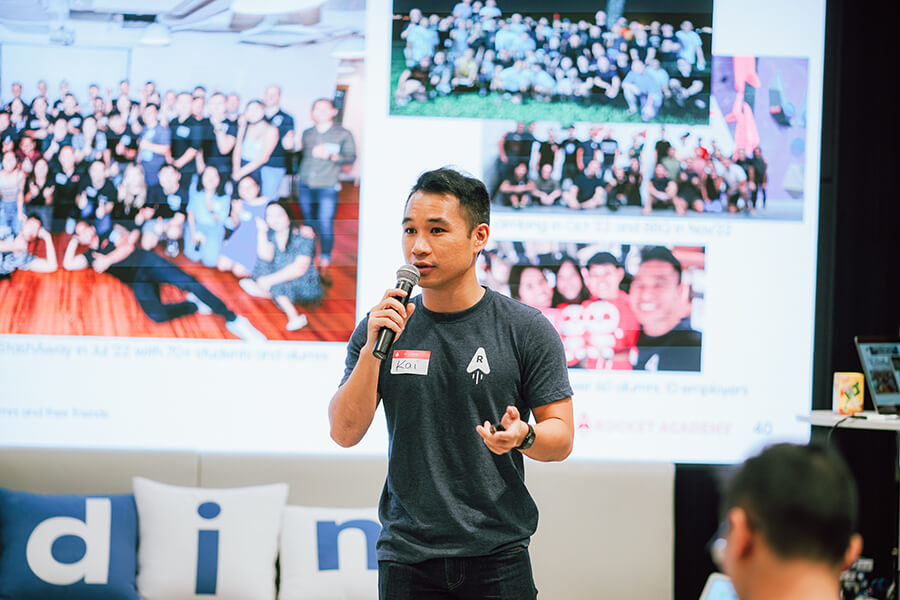
After experimenting with different business ideas (including an app for caregivers in senior care), he went back to his area of expertise, software engineering, and founded an online coding school, Rocket Academy, to address the global shortage of tech talent.
Kai Yuan built everything from scratch with the help of some friends, working day and night to raise funds. He launched the company at 30 in 2020, with just three students in its first cohort.
Today, Rocket Academy has taught over 1,000 students, and helped graduates secure jobs at more than 80 companies including Grab, Zendesk, DBS and Standard Chartered. Backed by the co-founders of Carousell, DoorDash and 99.co, it has now expanded to Hong Kong, and continues to grow at a steady pace.
Here, Kai Yuan shares the story behind Rocket Academy, and reveals his top business strategies while reflecting on his worst mistakes.
Kai Yuan: When I first launched Rocket Academy, I had to get customers (our students) and build the product (the course curriculum) by myself. I set up a website on Squarespace with a form to recruit our first students.
I then messaged all my networks to find students, and had conversations with about 10 of them, with three registering for our first cohort. I taught those students, and luckily they found great jobs at Glints, Xfers and GovTech after graduating. This success enabled us to recruit subsequent batches of students.
Friends provided a lot of support in the early days. They helped us with referring prospective students, setting up advertising, helping with the curriculum, teaching, mentoring, and even designing our logo. I will always be grateful to these friends for supporting us when we were just starting out.
Kai Yuan built everything from scratch with the help of some friends, working day and night to raise funds. He launched the company at 30 in 2020, with just three students in its first cohort.
Today, Rocket Academy has taught over 1,000 students, and helped graduates secure jobs at more than 80 companies including Grab, Zendesk, DBS and Standard Chartered. Backed by the co-founders of Carousell, DoorDash and 99.co, it has now expanded to Hong Kong, and continues to grow at a steady pace.
Here, Kai Yuan shares the story behind Rocket Academy, and reveals his top business strategies while reflecting on his worst mistakes.
Starting a new business can be a tough hustle. Kai Yuan, can you tell us what it was like to launch Rocket Academy?
Kai Yuan: When I first launched Rocket Academy, I had to get customers (our students) and build the product (the course curriculum) by myself. I set up a website on Squarespace with a form to recruit our first students.
I then messaged all my networks to find students, and had conversations with about 10 of them, with three registering for our first cohort. I taught those students, and luckily they found great jobs at Glints, Xfers and GovTech after graduating. This success enabled us to recruit subsequent batches of students.
Friends provided a lot of support in the early days. They helped us with referring prospective students, setting up advertising, helping with the curriculum, teaching, mentoring, and even designing our logo. I will always be grateful to these friends for supporting us when we were just starting out.

How did you grow your customer base from three students to your first 100?
Rocket Academy grew slowly for the first one and a half years. At the time, we had a S$500 introductory coding course called Basics, and a S$5,000 career conversion course called Bootcamp. Basics was a prerequisite for Bootcamp to help us screen prospective students. We launched a new Bootcamp batch every three months, which had about five students each, mostly from word of mouth. This was enough to cover costs, but we felt we could do more to grow.
We experimented with paid digital advertising, but it wasn’t the best use of our resources as competitors with deeper pockets were out-bidding us. Not many students were signing up for Basics and converting to Bootcamp.
One day, I decided we just needed more people to hear about us, and dropped the price of Basics to $0. We considered charging a nominal fee, but I decided to charge $0 for maximum exposure, hopefully validating demand for the paid Bootcamp course. I posted about the free introductory course on LinkedIn, and word spread quickly even without paid advertising. It attracted over 100 students a month, and Bootcamp course enrollments doubled.
Around the same time, we launched a part-time version of Bootcamp, which enabled students to become software engineers without quitting their jobs. This format proved popular and further increased our enrollments.
Getting the first investors was the hardest. Out of the 150 people I reached out to, about two-thirds were friends from school or work before I became an entrepreneur. About one-third were angel investors and venture capitalists I had met while exploring other startup ideas before Rocket Academy. Half of them declined without meeting. Of the other half I spoke with, about 50 chose to invest, and that was how we raised our pre-seed.
I will always be grateful to those that invested early because that provided social proof to subsequent investors. Once the round started to fill, it became progressively easier to convince subsequent investors because of the momentum and fear of missing out.
Early in the fundraising process when I was refining my pitch and understanding what resonated with investors, I asked my dad for advice. He shared one of the most profound answers I’ve ever heard: “Believe in what you are doing. If you believe in it, you will find a way to succeed regardless of whether investors invest. If you don’t believe in it, no matter how much investors invest, it will not succeed.”
I found this instrumental in my fundraising process, and easy to follow because I truly believed in Rocket Academy’s mission. I believe the investors felt it too, which helped them take a chance on me.
It was important for me to create a sense of urgency in investors. Without it, it’s in an investor’s interest to wait longer for more information about the business before committing. I had initially reached out to only five investors, but only one of them confirmed investment in the first week.
Around the same time, we launched a part-time version of Bootcamp, which enabled students to become software engineers without quitting their jobs. This format proved popular and further increased our enrollments.
You once spoke to 150 investors in 2 weeks to raise US$1 million in pre-seed funding. How did you find that many investors?
Getting the first investors was the hardest. Out of the 150 people I reached out to, about two-thirds were friends from school or work before I became an entrepreneur. About one-third were angel investors and venture capitalists I had met while exploring other startup ideas before Rocket Academy. Half of them declined without meeting. Of the other half I spoke with, about 50 chose to invest, and that was how we raised our pre-seed.
I will always be grateful to those that invested early because that provided social proof to subsequent investors. Once the round started to fill, it became progressively easier to convince subsequent investors because of the momentum and fear of missing out.
What strategies were most successful in convincing investors to get onboard?
Early in the fundraising process when I was refining my pitch and understanding what resonated with investors, I asked my dad for advice. He shared one of the most profound answers I’ve ever heard: “Believe in what you are doing. If you believe in it, you will find a way to succeed regardless of whether investors invest. If you don’t believe in it, no matter how much investors invest, it will not succeed.”
I found this instrumental in my fundraising process, and easy to follow because I truly believed in Rocket Academy’s mission. I believe the investors felt it too, which helped them take a chance on me.
It was important for me to create a sense of urgency in investors. Without it, it’s in an investor’s interest to wait longer for more information about the business before committing. I had initially reached out to only five investors, but only one of them confirmed investment in the first week.
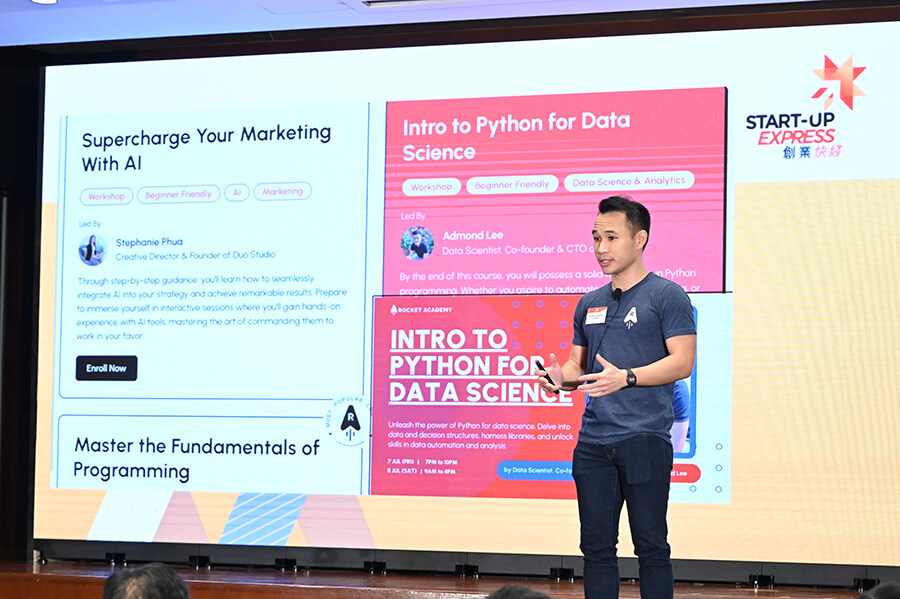
What is the business failure that you learned from the most?
Expanding operations too quickly in anticipation of growth, failing to invest adequately in growth, then letting go of good people when we could not reach our growth goals.
In 2021, Rocket Academy was on a growth spurt. We had raised US$1 million to enable us to grow faster. I expected our growth trajectory to continue, and hired multiple new team members.
By late 2021, cracks started to appear. Growth was not continuing as expected. We had communication challenges between certain colleagues. Some colleagues were upset at how we handled an operational mistake. Having a larger team also meant that individually, we were spending more time in communication and less time delivering for our students.
In the first half of 2022, solving these problems meant parting ways with about half of the team we hired. This was one of my greatest trials as a founder so far. It was painful to admit my mistakes, but necessary for the company to progress and for the team to recover.
In early 2023, we had to conduct another round of layoffs to balance the books and transition from a loss-making VC-backed business to a profitable bootstrapped business. It was just as painful, and I hope that is the last time we will have to make such a transition.
These experiences have led me to be more thoughtful and intentional about hiring, and I hope this will allow our team to flourish in the years to come.
The team comes first. When the team works well together, everything is possible. When there is tension on the team, everyone is affected.
This does not mean we take it easy on the team. On the contrary, this means we do everything we can to maximize the team’s effectiveness, providing anything the team needs to succeed, from motivation to self-care.
I once heard Jack Ma say that customers come first, employees second and shareholders third. Until recently I had always followed that order. But having overcome multiple challenges with our team over the years, I am convinced that employees come first.
In early 2023, we had to conduct another round of layoffs to balance the books and transition from a loss-making VC-backed business to a profitable bootstrapped business. It was just as painful, and I hope that is the last time we will have to make such a transition.
These experiences have led me to be more thoughtful and intentional about hiring, and I hope this will allow our team to flourish in the years to come.
What is one belief you hold that other business leaders might disagree with you on?
The team comes first. When the team works well together, everything is possible. When there is tension on the team, everyone is affected.
This does not mean we take it easy on the team. On the contrary, this means we do everything we can to maximize the team’s effectiveness, providing anything the team needs to succeed, from motivation to self-care.
I once heard Jack Ma say that customers come first, employees second and shareholders third. Until recently I had always followed that order. But having overcome multiple challenges with our team over the years, I am convinced that employees come first.
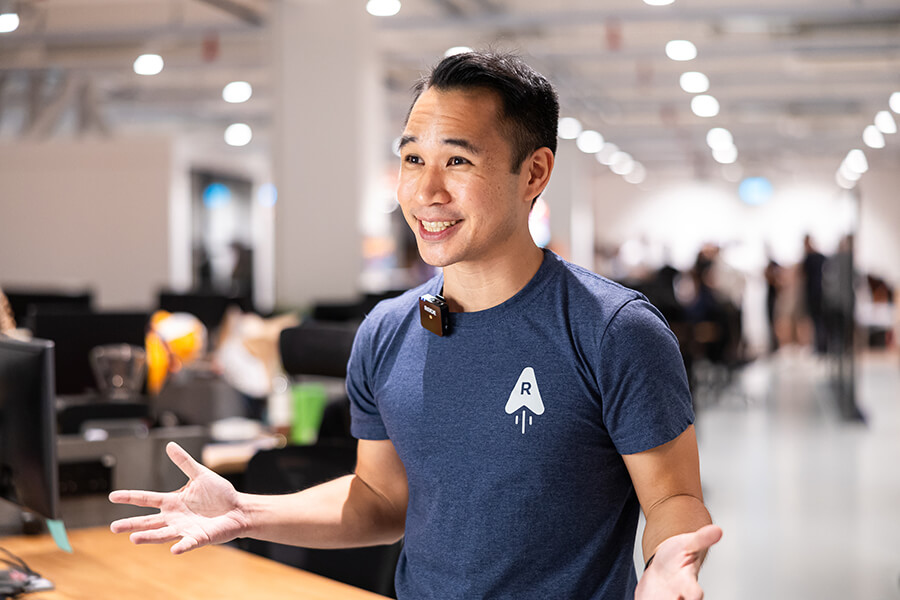
How do you keep Rocket Academy ahead of the competition?
Occasionally when I am looking for inspiration, I research other schools and how they present themselves. When I come across students or alumni from other schools, I ask them about their experiences to learn how Rocket Academy could improve. Other than that, we do not go out of our way to monitor competitors because our main priority is improving ourselves and continuing to delight our students.
We strive to have the most successful alumni by implementing selective admissions, and providing quality education and robust job support. We also regularly host community events for our students, alumni and the broader tech community, and we hope these efforts underscore our efficacy as the top school for tech education.
What is your number one secret to success in driving sales?
Authenticity and care. Customers can sense when we are advising them in their best interest, versus our own interest. Being honest about what we think is best for them, even if that means directing them to our competitors, helps them to trust us to deliver what they are looking for. The same applies to all kinds of sales, to prospective customers, employees, partners and investors.
***
Our Confessions of a CEO column quizzes Asia Pacific leaders on business insights that aspiring entrepreneurs can learn from. To discover more entrepreneurship stories like Kai Yuan’s, subscribe to our monthly newsletter and stay tuned for the next edition.
For more inspiration, SME stories and tips, visit our Small Business Center here.
For more inspiration, SME stories and tips, visit our Small Business Center here.
-
Previous
 5 Financial Tips For Expanding An E-Commerce Brand
5 Financial Tips For Expanding An E-Commerce Brand -
NextHow A New Zealand Family Business Found Global Success
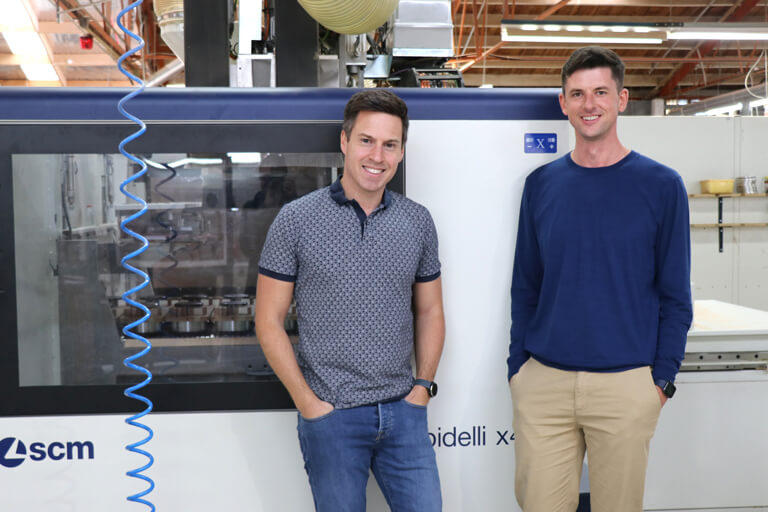








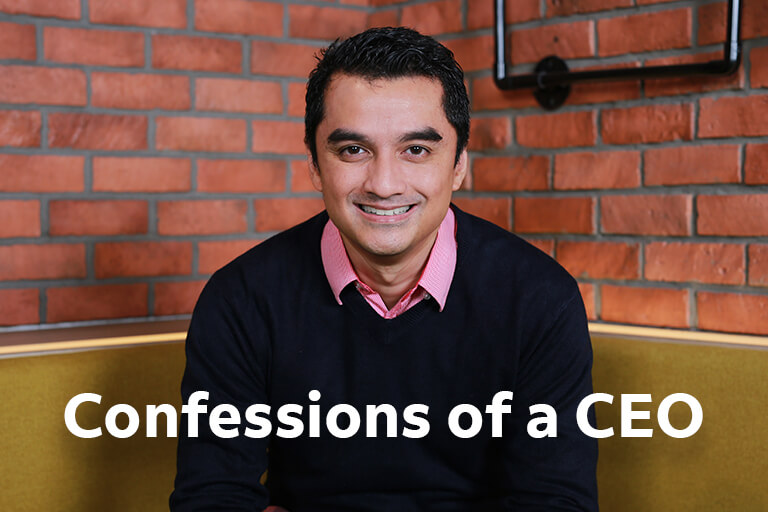







 The Latest
The Latest